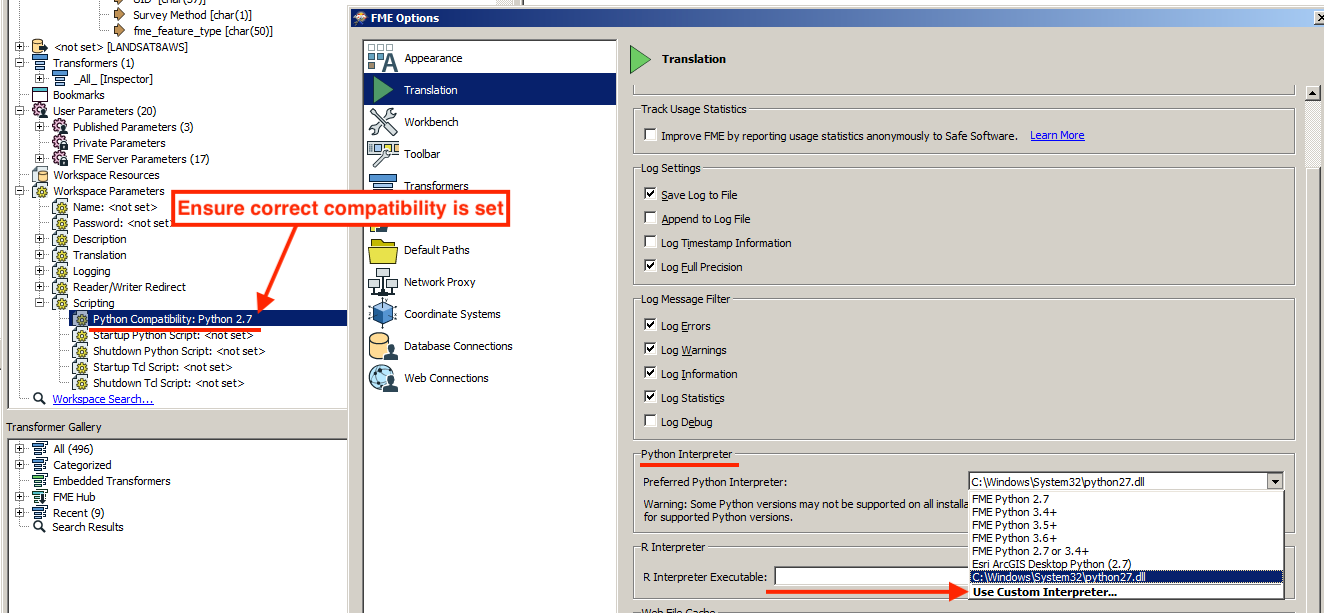Hi
Having problems where when we run a workspace pointing at a custom python interpreter (set by system environment variable PYTHONHOME), it uses the specified python interpreter when we run the workspace as my user. When we change to run the workspace as another user (service user running a bat file), then it uses the default python interpreter, not the custom interpreter specified in PYTHONHOME. Any ideas?
I've looked at the recent article here , but it doesn't mention whether there are any specific user settings required. @Mark2AtSafe, any thoughts on this?
Thanks
Mary





